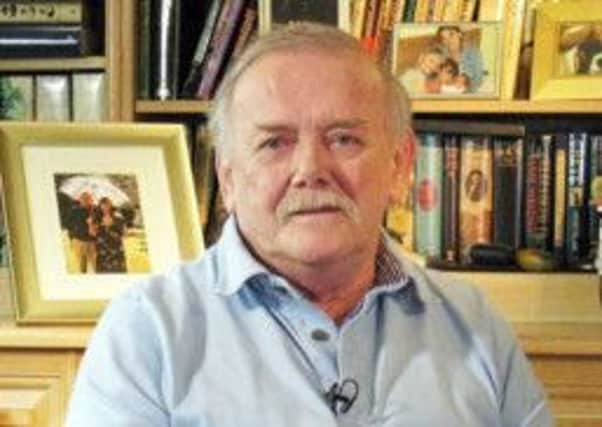Obituary: Bob Larbey, sitcom writer


Bob Larbey co-wrote with his professional partner John Esmonde some of Britain’s most loved television sitcoms – the best, undoubtedly, was The Good Life. It started in 1975 and only lasted on the BBC for three years – its charm, humour and wistful storylines stand up today with all their original captivating wit intact. Larbey and Esmonde wrote further series for The Good Life star Richard Briers, including The Other One (1977-79) and in 1984 Ever Decreasing Circles with Peter Egan.
Larbey also wrote on his own and enjoyed another huge success – A Fine Romance, starring Dame Judi Dench in her first television sitcom, alongside her real-life husband, Michael Williams. Larbey’s final hit proved another vehicle for Dench; this time with Geoffrey Palmer. The two played reunited lovers in As Time Goes By with unrestrained and obvious glee.
Advertisement
Hide AdAdvertisement
Hide AdEsmonde died in 2008, but The Good Life had been inspired by a conversation the two had had at Larbey’s 40th birthday party. The show got huge viewing figures and the four actors – Briers, Felicity Kendall, Paul Eddington and Penelope Keith – proved ideal casting. One episode was filmed in front of the Queen, who was said to be a devoted fan of the suburban Surbiton comedy.
Larbey had the ability to create situations that were amusing – the game of passing the orange at Christmas under the chin with a slightly tipsy Margot is a classic piece of situation comedy. Larbey turned an amusing situation into a hilarious one: he had that magical ability to develop a normal situation into recognisable (almost everyday) farce. His scripts had an underlying intelligence and understanding that brought together plot, characters and an absurd situation in glorious harmony.
Robert Edward John Larbey was educated at the Henry Thornton School in Clapham, where he was captain of tennis and got to know Esmonde, who was a contemporary. His first job was in an insurance office and he then did his National Service with the Education Corps. Larbey and Esmonde submitted sketches to the BBC earning two guineas – if the material was used.
Slowly, they built up a reputation for their scripts and in 1965 wrote Spare a Copper for the comedian Kenneth Connor, You’re Only Old Once (1969 for Clive Dunn) and Just Perfick. They had also provided gags for Dick Emery’s television show and in 1968 wrote their first smash hit Please Sir! with John Alderton and Deryck Guyler. It ran for 55 episodes and its success led to a feature film and a follow-up series, The Fenn Street Gang.
It was The Good Life that brought Larbey real fame. The plots centred around the snobbish Margot, the worries of the opera society casting, the horrors of the Goods’ garden and animals and Margot wearing a Christmas hat made out of the Daily Telegraph – “Never the Mirror”. It proved a winning combination. It was clean, uncomplicated entertainment. No smut or bad language: a loving lampoon of suburbia.
Larbey’s A Fine Romance (1981-84), with Dench and Williams for LWT was written with typical skill for the two stars. The script cleverly poked fun at their joint on-screen social insecurities. There was a charming scene when Williams suggests she comes to see his flat – clearly with ulterior motives. Dench and Williams played it with a refined nervousness that is captivating.
Larbey’s other solo successes included the first four episodes of The Darling Buds of May. That was followed in 1981 by As Time Goes By, which showed Dench at her most adept opposite Palmer’s vague, rather insouciant, manner. The two were a perfect partnership and clearly much enjoyed making the shows. It ran for nine series and a couple of reunion specials between 1992 and 2005.
Mulberry (1993) was a dark and moving comedy with strong undercurrents about mortality and aging. It starred Geraldine McEwan and Karl Howman and was a far from conventional sitcom – the series had its origins in Greek mythology.
Advertisement
Hide AdAdvertisement
Hide AdThe BBC did not commission a third series so the storyline was never rounded off – much to Larbey’s regret. The Good Life, for instance, Larbey insisted ended after three years because he felt the series had exhausted all of its comic possibilities: ending, appropriately, with a champagne toast from Briers to “the good life”.
Larbey was a modest man who rather enjoyed avoiding both the limelight and fame. Warm praise, however came yesterday from Palmer who said: “Bob was a totally brilliant writer.” Dench summed up her experience of working with him on two hit sitcoms thus: “Bob gave me more lines to make people laugh than anybody else in 53 years.”
Larbey was married to Trish Marshall. She died in 2006 and he is survived by their son.